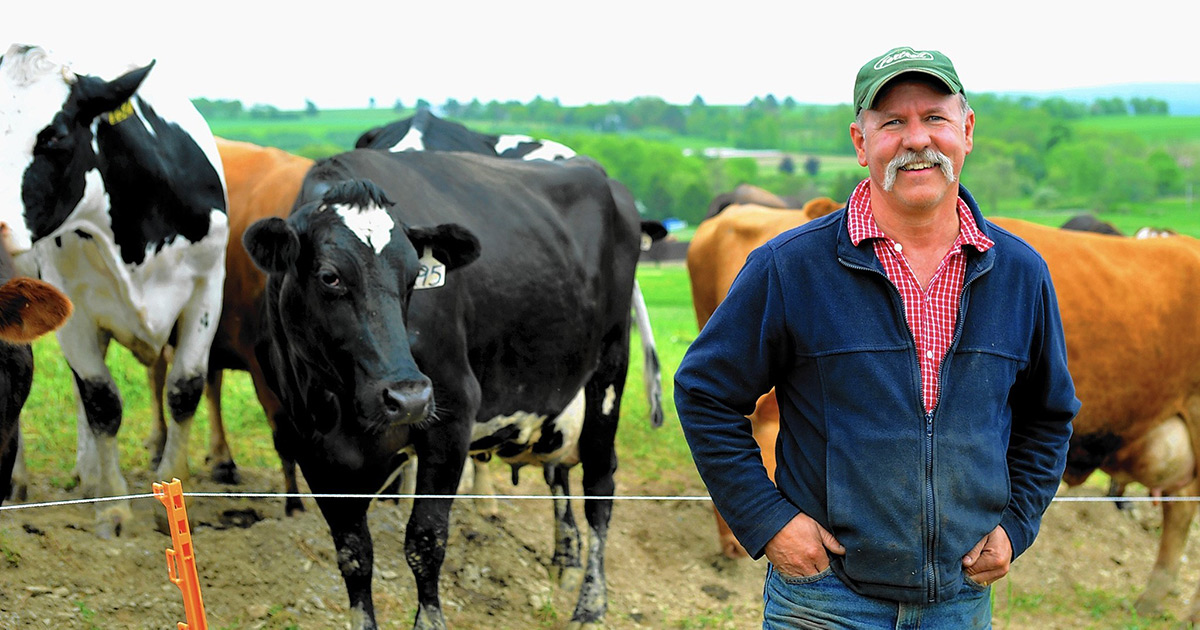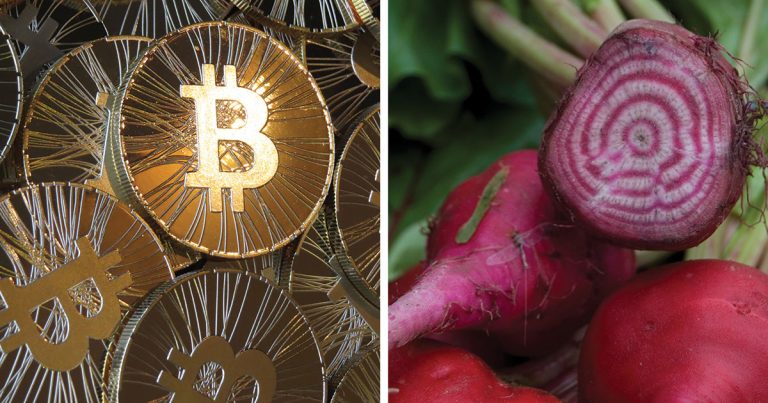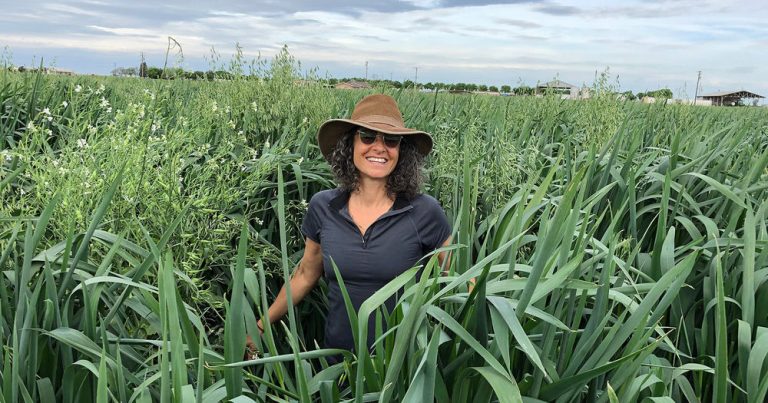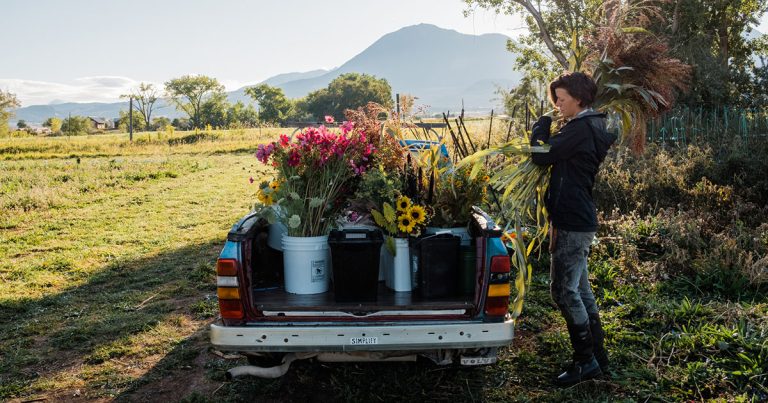Monday, June 19 • 3 min read
A Conversation With Jeff Moyer

Woody Tasch
Founder, Slow Money Institute

Woody Tasch: Jeff, before we begin, I want to thank you for the images of the jars of water, one with soil rich in organic matter and one with the dissolved murkiness of soil that is deficient in carbon. Ever since you showed those images during a public talk a decade or so ago, the comparison has stuck with me.

Woody Tasch: You’ve been at no-till and organic farming for decades. Do you see attitudes toward the health of the soil changing?
Jeff Moyer: What’s exciting is that you can’t go to a farmer meeting anywhere around the world today and not find the conversation centered around soil health. Previously, people talked about soil quality. But the problem with the term, “quality,” is it can apply to a watch or a car, but you don’t have a healthy watch or healthy car because they aren’t alive. So, once you assign the term health to the soil, you make it clear that it is alive. Now, we can go to work to improve the health of soil. You can impact its dynamic state of being. Farmers are really beginning to embrace this.
Lately, the terms “regenerative agriculture” and “carbon farming” have been gaining traction. Do they affect the way you are talking about things?
These terms represent fundamental shifts. It’s no longer about conservation. Robert Rodale coined the term “regenerative agriculture” decades ago. He knew that being organic isn’t good enough. You can farm organically and not improve the health of the soil or take care of animal welfare issues or workers’ rights. Farming regeneratively means taking into account all of these parts of the larger context.
The national organic standards had difficulty incorporating the concepts of continuous improvement. But this is key—improving the resource while you are using it. If you take care of the soil, it will improve over time while you are farming it.
Is no-till farming key to regenerative agriculture?
The more we reduce tillage, the better it is for the life in the soil. If you are an earthworm, tillage day is not a good day. Unfortunately, many organic farmers till the soil too much. It’s one of the tools for managing weeds, but it gets overused.
Any epiphanies along the way?
My constant epiphany is that because soil health is based on biology, improving soil health works and is amazing to watch. Everybody says at first, “It won’t work here.” But when they try it, it works. . . . Soil health impacts crop yields. As soil regenerates, the way it interacts with water changes. The resilience of crops and soil to climate change is dramatically improved and you see it in yields.
What is next for Rodale?
When we started, everyone said organics was a gardening tool, not a farming tool. Couldn’t be done at scale. When we demonstrated that you can farm organically at scale, people said, OK, but it doesn’t really address the question of soil health. Then, OK, we can see the impact of soil health, but what about the impact on food and nutrition? So, now we’re looking at proteins, amino acids, and all the factors that influence nutrients in food. Soil fungi are more prevalent in organic systems, and this may have demonstrable effects on human nutrition and fighting disease. This is a next frontier: the links between soil health and human health.



